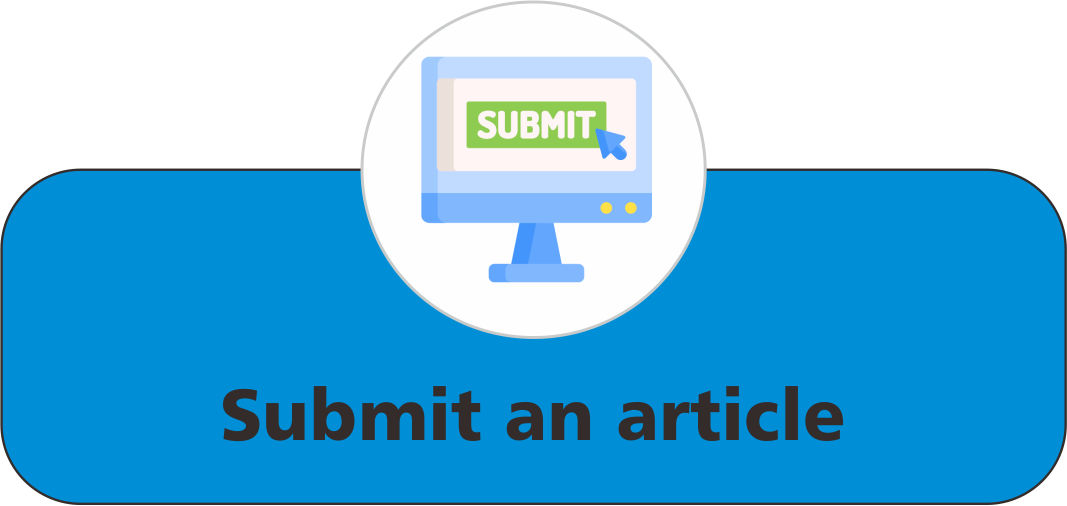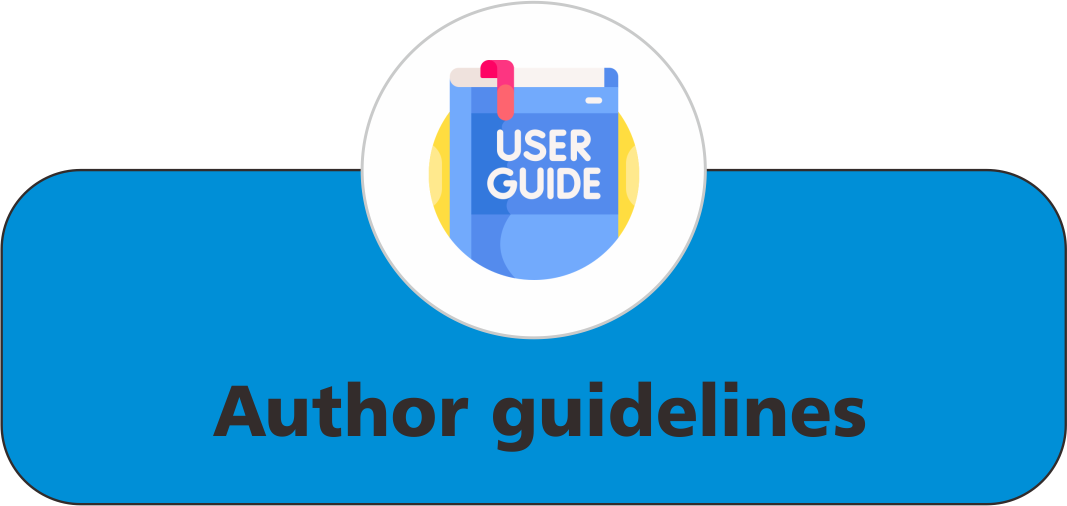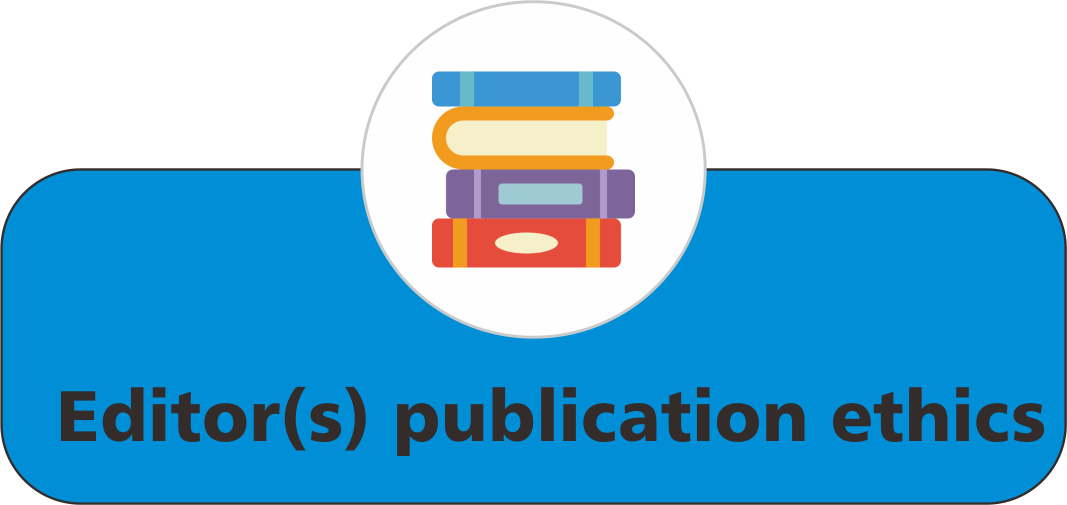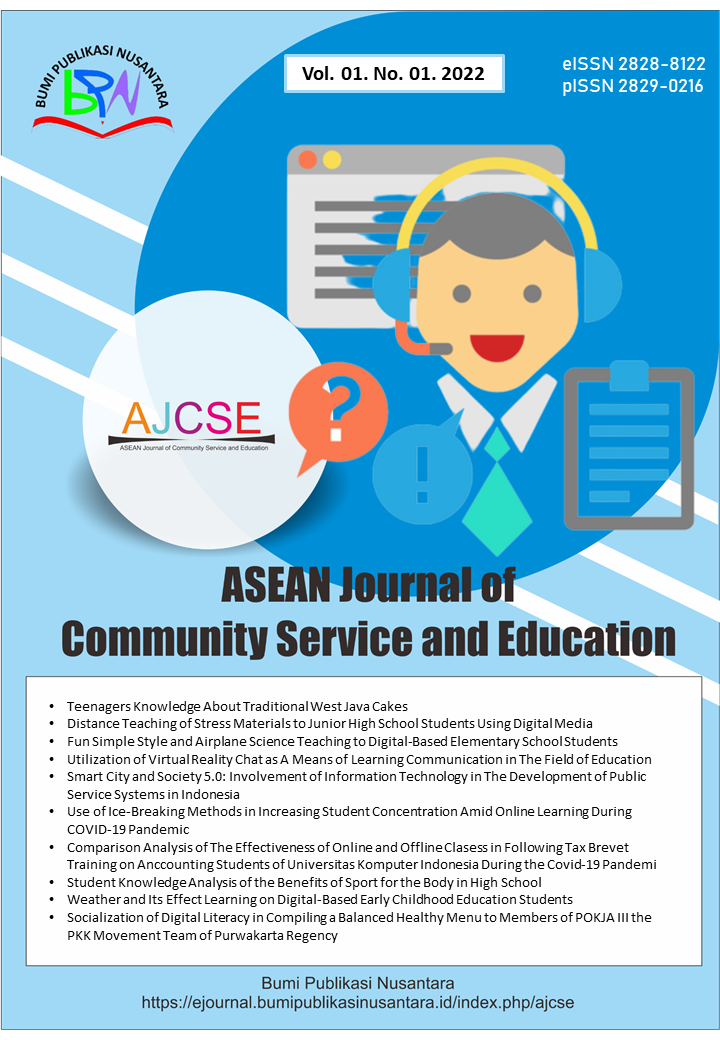Community Service Assessment of Demographic Predictors of Undergraduates’ Readiness to Use Artificial Intelligence (AI) Tools for Learning
 ), Issa Ahmed Idris(2), Ibrahim Mukhtar Adeola(3), Thomas Glory(4), Gbore Oladele Stephen(5),
), Issa Ahmed Idris(2), Ibrahim Mukhtar Adeola(3), Thomas Glory(4), Gbore Oladele Stephen(5),
(1) Veritas University Abuja
(2) University of Ilorin
(3) University of Abuja
(4) University of Technology Minna
(5) Adekunle Ajasin University
 Corresponding Author
Corresponding Author
Abstract
Artificial Intelligence (AI) is central to Education 4.0, yet undergraduates’ readiness to adopt AI tools varies across demographic groups. This study was conducted as a community service initiative to assess demographic factors as predictors of readiness to use AI tools for learning. Using a mixed-method explanatory sequential design, data were collected from 1,065 undergraduates in a quantitative survey and 15 students in qualitative interviews across public universities in North-Central Nigeria. The activity functioned as a service to the academic community by providing evidence-based insights into how gender and area of specialization influence students’ preparedness for AI adoption. Results indicated a significant prediction based on gender, while area of specialization was not a significant predictor. The project demonstrates how community service can extend beyond training to include diagnostic research that informs policy, promotes inclusive readiness, and contributes to sustainable educational development.
Keywords
References
Abdulhadi, C., Pente, P., Lemermeyer, G., and Rockwell, G. (2023). Ethical principles for artificial intelligence in K-12 education. Computers and Education: Artificial Intelligence, 4, 100131.
Adebayo, D., Sumintono, B., Mohamed, A., and Noor, N. S. M. (2021). E-learning readiness among students of diverse backgrounds in a leading Malaysian higher education institution. Malaysian Journal of Learning and Instruction, 15(2), 227–256.
Ajai, J. T. (2018). Gender, school location, age, and subject combination as predictors of secondary school students’ academic performance in mathematics. Gombe Journal of Education, 2(1), 61–71.
Akgun, S., and Greenhow, C. (2022). Artificial intelligence in education: Addressing ethical challenges in K-12 settings. AI and Ethics, 2(3), 431–440.
Al Husaeni, D.F., Haristiani, N., Wahyudin, W., and Rasim, R. (2024). Chatbot artificial intelligence as educational tools in science and engineering education: A literature review and bibliometric mapping analysis with its advantages and disadvantages. ASEAN Journal of Science and Engineering, 4(1), 93-118.
Ali, O., Murray, P. A., Momin, M., Dwivedi, Y. K., and Malik, T. (2024). The effects of artificial intelligence applications in educational settings: Challenges and strategies. Technological Forecasting and Social Change, 199, 123076.
Al-Khassawneh, Y.A. (2023). A review of artificial intelligence in security and privacy: Research advances, applications, opportunities, and challenges. Indonesian Journal of Science and Technology, 8(1), 79-96.
Alnasib, B. N. M. (2023). Factors affecting faculty members’ readiness to integrate artificial intelligence into their teaching practices: A study from the Saudi higher education context. International Journal of Learning, Teaching and Educational Research, 22(8), 465–491.
Anisur, D., and Pravakar, F. (2020). The role and impact of ICT in improving the quality of education. SSRN Electronic Journal, 1(3), 1-6.
Bubou, G. M., and Job, G. C. (2022). Individual innovativeness, self-efficacy, and e-learning readiness of students of Yenagoa study centre, National Open University of Nigeria. Journal of Research in Innovative Teaching and Learning, 15(1), 2–22.
Dangol, R., and Shrestha, M. (2021). Contribution of gender on learning readiness among school students of Nepal. Journal of Curriculum Studies Research, 3(2), 19–36.
Dodge, J., Prewitt, T., Tachet des Combes, R., Odmark, E., Schwartz, R., Strubell, E., Luccioni, A. S., Smith, N. A., DeCario, N., and Buchanan, W. (2022). Measuring the carbon intensity of AI in cloud instances. ACM Conference on Fairness, Accountability, and Transparency, 1(1), 1-25.
Eddy, V., and Brownell, S. (2022). Artificial intelligence and technology in weather forecasting and renewable energy systems: Emerging techniques and worldwide studies. Artificial Intelligence for Renewable Energy Systems, 189–207.
Eze, S. C., Chinedu-Eze, V. C. A., Okike, C. K., and Bello, A. O. (2020). Factors influencing the use of e-learning facilities by students in a private higher education institution in a developing economy. Palgrave Communications, 7(1), 1–15.
Eze, V. O. (2015). Gender and area of specialization as determinants of the University of Nigeria undergraduates’ attitude towards the use of English. International Journal of Humanities and Social Science Studies, 1(6), 123–135.
Ezeudu, S. A., and Ojih, L. U. (2014). Influence of area of specialization and years of teaching experience of geography teachers on their competency in teaching map work in secondary schools in Kogi State. Research on Humanities and Social Sciences, 4(18), 78–85.
García-Peñalvo, F. J. (2023). The perception of artificial intelligence in educational concepts after the launch of ChatGPT: Disruption or panic? Education in the Knowledge Society, 1(1), 1–9.
Gültekin, M. (2022). Human-social robot interaction, anthropomorphism and ontological boundary problem in education. Psycho-Educational Research Reviews, 11(11), 751–773.
Hartono, W. J., Nurfitri, N., Ridwan, R., Kase, E. B., Lake, F., and Zebua, R. S. Y. (2023). Artificial intelligence (AI) solutions in English language teaching: Teachers-students perceptions and experiences. Journal on Education, 6(1), 1452–1461.
Hoang, H. H. (2023). Artificial intelligence in the digital age and its strengths and weaknesses in the field of education today. Yantu Gongcheng Xuebao/Chinese Journal of Geotechnical Engineering, 45(1), 1–7.
Kabir, H., Nasrullah, S. M., Hasan, M. K., Ahmed, S., Hawlader, M. D. H., and Mitra, D. K. (2021). Perceived e-learning stress as an independent predictor of e-learning readiness: Results from a nationwide survey in Bangladesh. PLoS ONE, 16(10), e0259281.
Keleş, P. U., and Aydın, S. (2021). University students’ perceptions about artificial intelligence. Shanlax International Journal of Education, 9(1–5), 212–220.
Kurtdede, F. N., and Yıldırım, N. (2022). Teacher education in Turkey in the COVID-19 pandemic: Experiences of pre-service teachers with online teaching practice. Psycho-Educational Research Reviews, 2(4), 77–92.
Kwet, M., and Prinsloo, P. (2020). The ‘smart’ classroom: A new frontier in the age of the smart university. Teaching in Higher Education, 1(1), 9–21.
Leaper, C., and Starr, C. R. (2019). Helping and hindering undergraduate women’s STEM motivation: Experiences with STEM encouragement, gender bias, and sexual harassment. Psychology of Women Quarterly, 43(2), 165–183.
Lua, P. L., and Ibrahim, U. I. (2015). Perception and readiness of community pharmacists on the use of mobile smartphones as a health monitoring tool. Education in Medicine Journal, 7(3), 35–43.
Malahay, R. S. (2021). Area of specialization and teaching performance of secondary science teachers in Negros Oriental, Philippines. Journal of Scientific Research & Reports, 27(11), 97–103.
Nataliia, V. V., Tatiana, L. G., Nataliya, K. O., and Viacheslav, V. O. (2021). Cloud tools for basics of artificial intelligence study in school. CEUR Workshop Proceedings, 1(2), 170–184.
Popenici, S. A. D., and Kerr, S. (2017). Exploring the impact of artificial intelligence on teaching and learning in higher education. Research and Practice in Technology Enhanced Learning, 12(2), 23–34.
Rahayu, N.I., and Ismail, A. (2023). Trends in the use of artificial intelligence (AI) technology in increasing physical activity. Indonesian Journal of Educational Research and Technology, 3(3), 295-304.
Ramírez-Correa, J., Zhao, Y., and Xie, Y. (2015). Artificial intelligence leads the reform of education models. Systems Research and Behavioral Science, 39(3), 581–588.
Ravi, K. V. V., and Raman, R. (2022). Student perceptions on artificial intelligence (AI) in higher education. IEEE Integrated STEM Education Conference (ISEC), 1(1), 1-25.
Rochman, S., Rustaman, N., Ramalis, T.R., Amri, K., Zukmadini, A.Y., Ismail, I., and Putra, A.H. (2024). How bibliometric analysis using VOSviewer based on artificial intelligence data (using ResearchRabbit Data): Explore research trends in hydrology content. ASEAN Journal of Science and Engineering, 4(2), 251-294.
Solihat, A.N., Dahlan, D., Kusnendi, K., Susetyo, B., and Al Obaidi, A.S.M. (2024). Artificial intelligence (AI)-based learning media: Definition, bibliometric, classification, and issues for enhancing creative thinking in education. ASEAN Journal of Science and Engineering, 4(3), 349-382.
Xuan, P. Y., Fahumida, M. I. F., Hussain, M. I. A., Jayathilake, N. T., Khobragade, S., Soe, H. H. K., Moe, S., and Htay, M. N. N. (2023). Readiness towards artificial intelligence among undergraduate medical students in Malaysia. Education in Medicine Journal, 15(2), 49–60.
Zeng, F. (2023). Levels of relational messages and gender voices on the evaluation of AI instructors by students. SSRN Electronic Journal, 1(2), 1-35.
Article Metrics
Abstract View : 375 times
: 375 times Download : 141 times
Download : 141 times
Refbacks
- There are currently no refbacks.
Copyright (c) 2025 Bumi Publikasi Nusantara

This work is licensed under a Creative Commons Attribution-ShareAlike 4.0 International License.







